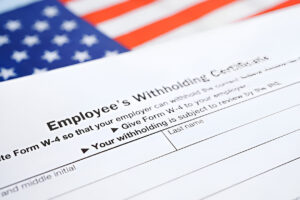How to Use a Fence Cost Calculator to Plan Your Perfect Fence Installation
Installing a fence is one of the smartest investments homeowners and property managers can make. Whether you’re enhancing privacy, boosting security, or adding curb appeal, knowing your fencing budget upfront is crucial. That’s where a fence cost calculator becomes a game-changing tool. In this guide, we’ll explore how these tools work, why you should use one, the factors affecting fence pricing, and what to consider before installing your fence.
What Is a Fence Cost Calculator?
A fence cost calculator is an online tool designed to give homeowners an estimated cost for their fencing project based on a few basic details. By inputting information like the total fence length, preferred material, and desired fence height, you can instantly receive a price range for your fence installation.
These calculators help eliminate financial guesswork and make it easier to compare materials, layout options, and additional features such as gates and custom designs.
Why Use a Fence Cost Calculator?
Here’s why homeowners and property managers increasingly rely on a fence cost calculator before starting a fencing project:
- Instant Estimates: Get a price range in minutes.
- Budget Planning: Plan your project expenses without surprises.
- Material Comparisons: See how different materials like wood, vinyl, chain link, or metal affect your total cost.
- Customization Options: Add gates, decorative features, or custom designs to see how they change pricing.
- Project Feasibility: Determine whether your ideal fence fits your current budget.
Key Factors That Affect Fence Pricing
Understanding what influences fencing costs can help you get a more accurate result from a fence cost calculator. Here are the major cost components:
1. Fence Material
The type of material is the most significant factor in determining your fence’s total cost. Common options include:
- Wood: Traditional and affordable but requires regular maintenance.
- Vinyl: Durable and low maintenance with a higher upfront cost.
- Chain Link: Cost-effective, suitable for large areas.
- Aluminum: Stylish, rust-resistant, and long-lasting.
- Wrought Iron: Highly durable with premium pricing.
2. Fence Height
A taller fence requires more material and labor, increasing the overall price. Many residential fences are between 4 to 6 feet tall.
3. Total Fence Length
The length of your fence is a direct cost factor. The more linear feet you need to cover, the higher the material and labor costs.
4. Number and Type of Gates
Adding gates, whether walk-through or vehicle-sized, adds to your total fence price. Specialty gates with automated systems cost even more.
5. Land Conditions
Uneven terrain, rocky soil, or existing structures can complicate installation, affecting both material requirements and labor costs.
6. Local Labor Costs
Labor pricing varies by region, so it’s essential to factor in the going rates in your area when using a fence cost calculator.
How to Use a Fence Cost Calculator Effectively
Using a fence cost calculator is straightforward, but providing accurate details ensures your estimate is reliable. Follow these steps:
- Measure Your Property
Use a tape measure or property map to determine the total linear footage required for your fence. - Select Fence Material
Choose your preferred fencing material from the calculator options. - Specify Fence Height
Decide how tall you want your fence to be based on your privacy and security needs. - Add Gates and Accessories
Indicate the number and type of gates or decorative add-ons you need. - Include Land Features
Mention if your land is sloped, rocky, or otherwise challenging. - Get Your Estimate
Submit your details and instantly receive a price range for your project.
Benefits of Using a Fence Cost Calculator
The advantages of using a fence cost calculator extend beyond simple budgeting. Here’s what you gain:
- Project Transparency: Know what you’re paying for before starting.
- Improved Decision-Making: Easily compare material and layout options.
- Time Savings: Skip manual calculations or lengthy consultations.
- Accurate Budget Management: Avoid hidden expenses and cost overruns.
- Enhanced Planning: Coordinate other home improvement projects around your fence installation.
Popular Fence Styles to Consider
When using a fence cost calculator, it helps to know the various fence styles available. Common styles include:
- Privacy Fences: Solid wood or vinyl for maximum seclusion.
- Picket Fences: Classic style for front yards and gardens.
- Chain Link Fences: Affordable and practical for large properties.
- Ornamental Metal Fences: Decorative aluminum or wrought iron designs.
- Split Rail Fences: Rustic look, often used on large rural properties.
Each style comes with unique pricing and installation requirements, which your fence cost calculator can factor into the estimate.
Important Considerations Before Installing a Fence
Before starting your fence project, it’s wise to think through these points:
- Check Property Lines: Verify exact property boundaries to avoid disputes.
- Review Local Zoning Laws: Ensure your fence height and placement comply with local regulations.
- Consider Neighbor Relations: Inform adjacent property owners about your plans.
- Plan for Maintenance: Different materials require varying maintenance levels.
- Balance Budget and Features: Use a fence cost calculator to find the perfect balance between cost and style.
FAQs About Using a Fence Cost Calculator
How accurate is a fence cost calculator?
Most calculators provide a reliable price range based on the information you enter. However, actual costs may vary due to site-specific conditions or unforeseen labor expenses.
Do I need to pay to use a fence cost calculator?
No, most reputable online calculators are free to use.
Can a fence cost calculator include demolition of an existing fence?
Some calculators allow you to add demolition costs. If not, you can estimate it separately or request a contractor quote.
How do I choose the right fencing material using a fence cost calculator?
The calculator lets you compare multiple materials side by side. Consider factors like durability, maintenance, and aesthetic appeal to make your decision.
Will a fence cost calculator include permits and additional fees?
Some calculators account for permit fees if specified, but it’s recommended to check with your local authorities for exact amounts.
Conclusion
A fence cost calculator is an invaluable tool for anyone considering a new fence installation. It helps you plan your budget, compare materials, and visualize project feasibility. By inputting accurate measurements and preferences, you’ll receive an estimate that streamlines decision-making and ensures a smoother, more transparent fencing project. Before you begin, take a few minutes to use a reliable fence cost calculator and get one step closer to the perfect fence for your property.














1 comment